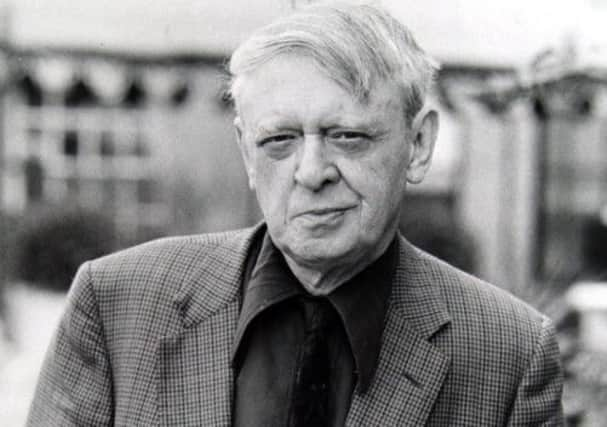Reviewing that came to sudden full stop


Although Anthony Burgess is best known for his 1962 novel A Clockwork Orange, he published more than 50 other books in a career which lasted from 1956 until his death in 1993.
Last week a new Anthony Burgess Prize for Arts Journalism was established in his memory, and a stage musical version of A Clockwork Orange is currently playing at the Olympic stadium in Montreal.
Advertisement
Hide AdAdvertisement
Hide AdYet many people do not realise that Burgess was a regular contributor to the Yorkshire Post between 1961 and 1963, when he wrote a fortnightly column about new fiction for the books pages.
When the Yorkshire Post hired Burgess, he had recently become a full-time writer after losing his teaching job in Brunei. During the same period, he was reviewing television for the Listener, and making TV and radio programmes for the BBC. He also continued to publish fiction under two different names: Anthony Burgess and Joseph Kell.
This double identity was to cause trouble later.
Burgess had family connections in the Leeds area, since his cousin, George Dwyer, was the Catholic Bishop of Leeds. Burgess would stay with Bishop Dwyer when he came north to attend the Yorkshire Post’s famous literary lunches. He once said that the smell of the back streets of Leeds reminded him strongly of Leningrad.
The editor of the books pages was Kenneth Young, who sent weekly parcels of new novels to Burgess’s home at Etchingham in East Sussex. Burgess was overwhelmed by the quantity of books which arrived, and he said that his local Post Office had to take on extra staff to cope with the volume of mail.
Advertisement
Hide AdAdvertisement
Hide AdHis first wife, a part-time translator, was given the job of sifting the new novels for review. One of his discoveries was Joseph Heller, whose first novel, Catch 22, was published in June 1962. Burgess admired this “brilliantly contrived” book, but he worried that Heller had turned the Second World War into a farce. He also reviewed Pale Fire, Vladimir Nabokov’s follow-up to the scandalous Lolita, which became one of his favourite books.
Although Burgess enjoyed his reviewing job and took it seriously, it came to a sudden end in 1963. Writing as Joseph Kell, he had just published a novel called Inside Mr Enderby. When a copy of this book arrived in a parcel from the Yorkshire Post, Burgess assumed that Kenneth Young was in on the joke, and he wrote a long review which was published on 16 May 1963 under the headline “Blasts from the Smallest Room”:
“This is, in many ways, a dirty book. It is full of bowel-blasts and flatulent borborygms, emetic meals … and halitosis. It may make some people sick, and those of my readers with tender stomachs are advised to let it alone. It turns sex, religion, the State into a series of laughing-stocks. The book itself is a laughing-stock. And yet how thin and under-savoury everything seems after Enderby’s gross richness.”
This was a fairly negative review. But when it was discovered, a few days later, that Burgess and Kell were the same person, he was immediately sacked.
Advertisement
Hide AdAdvertisement
Hide AdAn unsigned editorial was published which apologised “to those readers who may have been under the impression, as we were, that they were being given a disinterested appreciation of the novel by Joseph Kell.”
No doubt the thousands of readers who have enjoyed Joseph Kell’s novels since the early 1960s would disagree with Anthony Burgess’s rather grudging assessment of him. Now that both of Kell’s novels have been reprinted under Burgess’s name, a new generation of readers will be able to enjoy them afresh.
These wonderful books, forgotten for too long, remind us, perhaps unexpectedly, what a great comic novelist he could be.
A writer’s dual identity
Anthony Burgess, best known for his controversial novel A Clockwork Orange, published books under his own name and under the name of Joseph Kell.
Advertisement
Hide AdAdvertisement
Hide AdThe novels he wrote under the name of Kell are being reissued under his own name.
The Complete Enderby is published in paperback by Vintage this month.
Serpent’s Tail are re-issuing 1985, One Hand Clapping and Tremor of Intent.
They are available from March 14 2013, all priced £8.99.
Andrew Biswell is a principal lecturer in English at Manchester Metropolitan University.